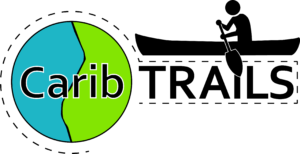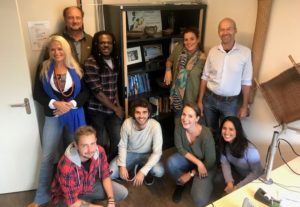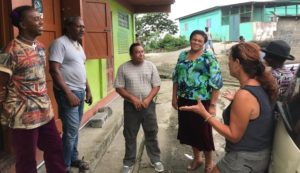CaribTRAILS – Caribbean Transdisciplinary Research
The indigenous Amerindian past of the Caribbean region is hidden in a vulnerable soil, which is under constant threat of natural disasters, climate change, looting and illegal trade, economic pressures, tourist development, and a lack of heritage awareness. Insufficient effective legislation for the protection of heritage in many of the islands leads to the destruction of archaeological heritage and the loss of knowledge about a crucial episode in global history: the unwritten history of the indigenous Amerindian inhabitants, whose descendants were the first to come eye to eye with European colonizers in the America’s.
Until recently, the transformations and responses of indigenous Amerindian societies to changing natural, cultural, social, economic, and political environments triggered by European invasion and colonialism were largely unknown. The study of the Caribbean archaeological record and the transdisciplinary research conducted by the ERC-Synergy project NEXUS1492 (2013-2019) led by CPI Prof. Corinne L. Hofman, has provided fresh insights into these infamous histories by uncovering the indigenous perspectives hitherto overshadowed by dominant Eurocentric viewpoints. The CaribTRAILS project, which is funded by the NWO Spinoza prize awarded to Prof. Hofman in 2014, continues on this important work at the KITLV.
Through comparative research with regions that have similar colonial histories, CaribTRAILS aims to place indigenous Caribbean pre- and post-colonial history in a global perspective. The project thereby aims to contribute to the debate on decolonization practices; human rights of indigenous peoples and the governance of climate change; the confrontation between ethnic groups, cultures, and religions; and issues related to changing social relations, inter-cultural dialogue, social cohesion, and diversity in an increasingly globalized world.
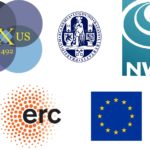
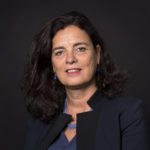
Corinne L. Hofman (principal investigator)
Corinne L. Hofman is PI of the CaribTRAILS project at the KITLV, which receives funding from the NWO Spinoza prize awarded to her in 2014. She is also Professor of Caribbean Archaeology at the Faculty of Archaeology, Leiden University. From 2013 to 2019, Hofman was the CPI of the ERC-Synergy project NEXUS1492. Read more.
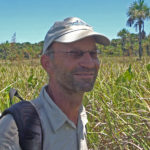
Menno L.P. Hoogland (senior researcher)
Menno Hoogland is Associate Professor in Caribbean Archaeology at the Faculty of Archaeology, Leiden University. He studied cultural anthropology with a focus on prehistory and physical anthropology at Leiden University. In 1980, he participated in the Spitsbergen expedition of the University of Groningen. He wrote his doctoral thesis on settlement patterns of the Amerindian population of Saba, Netherlands Antilles. Read more.
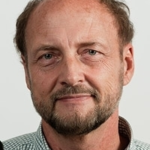
Andrzej T. Antczak (senior researcher)
Andrzej T. Antczak is Associate Professor in Caribbean Archaeology at the Faculty of Archaeology, Leiden University. He studied anthropology in Poznań (UAM Poland) and in Caracas (UCV, Venezuela), and received PhD from UCL (Great Britain), in 1999. Between 2013 and 2019, he was a senior researcher in the project NEXUS1492. Read more.
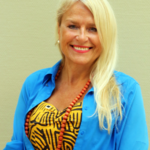
Maria Magdalena (Marlena) Antczak (senior researcher)
Maria Magdalena (Marlena) Antczak is an archaeologist specialized in Northern South America and the Caribbean. She is currently a senior researcher at KITLV, studying the impact of indigenous imagery across the ‘Columbian divide’ in the Southeastern Caribbean within the project CaribTRAILS. Her work focuses on the role of figurative material culture and its involvement in the construction and maintenance of socio-cultural identities and ideologies in the past and in the present. Read more.
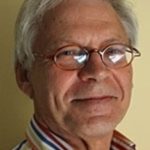
Arie Boomert (guest senior researcher)
Arie Boomert (1946) is a Guest Researcher at KITLV, specialized in the archaeology, anthropology and ethnohistory of the West Indies, notably Trinidad, Tobago and the Windward Islands, next to the Guianas, Venezuela, and Amazonia.
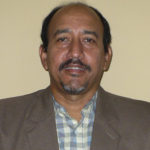
Jorge Ulloa Hung (visiting senior researcher)
Jorge Ulloa Hung is a senior researcher in the CaribTRAILS project at KITLV. He is also a research professor in the Area of Social Sciences and Humanities at the Instituto Tecnológico de Santo Domingo (INTEC) and Director of the open access journal Ciencia y Sociedad. Ulloa Hung obtained his PhD from Leiden University (2013) with a dissertation related to archaeology in the Northwest region of Hispaniola. Between 2013 and 2019, he was a postdoctoral researcher in the project NEXUS1492: New World Encounters In A Globalizing World, studying archaeological landscapes and indigenous legacies and persistence in the region of first colonial encounters in northern Hispaniola, particularly along the route followed by Christopher Columbus in 1494.
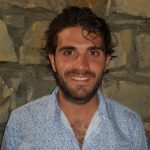
Simone Casale (Postdoctoral Researcher & GIS specialist)
Simone is a Postdoctoral researcher at the KITLV and Leiden University, Faculty of Archaeology. His research tries to overcome the archaeological narratives in the Caribbean region, with a focus on Puerto Rico, Dominican Republic, and the Bahamas archipelago. Narratives have aided in the creation of a simplistic and static perception of the first inhabitants of the region. In contrast, Simone’s study aims to target questions linking ceramic manufacturing practices, social complexity, and multiculturality among ancient Caribbean societies. A detailed analysis of Caribbean lifeways through their ceramic practices, such as the technologies required for procuring, fashioning, and use will provide unique archaeological data on indigenous identities and sociocultural behaviors prior to the devastating effects of Spanish invasions. Read more.
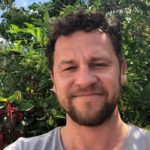
Gene Shev (Postdoctoral Researcher)
Gene Shev is a Postdoctoral Research at KITLV. He completed his NWO-funded PhD researcher at Leiden University, Faculty of Archaeology in December 2022. His research focusses on investigating the animal management practices of indigenous insular Caribbean societies prior to the arrival of Europeans. Although the utilization of domesticated plants is well attested in the archaeological record, little is known about the form and extent of animal husbandry practices operating in the region, and therefore pivotal aspects of indigenous environmental perspectives require elucidation. To address this lacuna of knowledge, Gene is studying zooarchaeological assemblages from indigenous sites with a particular focus on the Dominican Republic and Jamaica. Part of this research involves the employment of multi-isotopic analyses in order to ascertain whether certain endemic animals to the Caribbean region were being captively managed or were under a process of proto-domestication prior to AD 1500. Isotopic studies of native fauna additionally provide valuable insight into the environmental and climatic conditions faced by indigenous peoples, and when coupled with zooarchaeological investigation, educate us to the adaptive strategies employed by indigenous peoples in how they reacted to, utilized and cohabited space with the animals around them.
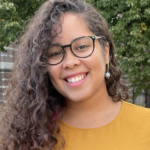
Marianny Aguasvivas Hernandez (research assistant)
Marianny Aguasvivas studied Art History, Archaeology and Anthropology for her BA at University of East Anglia, and Caribbean Archaeology and Heritage and Museum studies for her RMA at Leiden University. Coming from the Dominican Republic, her RMA thesis focused on the misrepresentation of African legacy in Dominican museums. Her main research interests are decolonisation, untold stories, multi-vocality and community engagement. She is currently working at KITLV as a research assistant in the CaribTRAILS project. Some of her tasks include helping with the preparation of a Spanish publication with a compilation of the project’s research papers, as well as collaborating with the Caribbean diaspora in the Netherlands for the creation and development of heritage initiatives.
Fellows
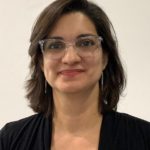
Arlene Alvarez (affiliated fellow)
Arlene Alvarez is an affiliated fellow within KITLV’s CaribTRAILS project, and an affiliated PhD researcher in the NEXUS1492 project (2013-2019) at Leiden University’s Faculty of Archaeology. Her research interests include heritage management, community participation, and social development. She has a BA in Sociology and Political Science from Rutgers University and an MA in Public Administration from Baruch College. As director of the Altos de Chavón Regional Museum of Archaeology in the Dominican Republic for the past 19 years, Arlene was in charge of all aspects of collections care, community outreach, and educational development. She also served as a coordinator for the SAMP Intercontinental Museum Network where she collaborated in several projects with museums from Africa, Asia, Latin America, and Sweden.
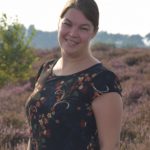
Marlieke Ernst (affiliated fellow)
Marlieke Ernst is a PhD researcher at Leiden University, Faculty of Archaeology, working as part of NEXUS1492. Her research focusses on ceramic material transformations. She investigates transcultural processes within intercultural communications through ceramics from Hispaniola and Cubagua. Marlieke’s research is centered around continuities and changes in the manufacture of early colonial, locally made ceramics from Spanish colonial sites. This study assesses the extent to which indigenous pottery traditions remained or disappeared and the amount in which new techniques and forms were created at the colony.

Jay B. Haviser (affiliated fellow)
Dr. Jay B. Haviser, now retired, was the specialist for Monuments and Archaeology at the Ministry of VROMI office of the Government of St. Maarten (2007-2018), after having been the Archaeologist for the Netherlands Antilles Government (1982-2007). He received his doctorate in Archaeology from Leiden University in 1987, and is currently affiliated with the Leiden University Faculty for Archaeology. Dr. Haviser has served the region as the President of the International Association for Caribbean Archaeology (1999-2007; 2013-2019), the Senior Regional Representative for the Caribbean in the World Archaeological Congress (2002-2008), as well as President of the Museums Association of the Caribbean (2000-2002). He was granted Knighthood by Queen Beatrix of the Netherlands in 2008, for his archaeology work in the Netherlands Antilles. Some of his more prominent book publications include: African Sites Archaeology in the Caribbean (1999), and co-editor of African Re-Genesis (2006) and Managing Our Past into the Future (2015), as well as writing over 120 international publications. He has created and is currently directing, three Youth and Science programs called SIMARC on St. Maarten, BONAI on Bonaire, and SABARC on Saba
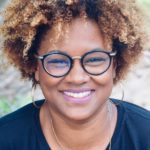
Katarina Jacobson (affiliated fellow)
Katarina Jacobson studied Pre-columbian Archaeology and obtained a Master’s degree from Sorbonne-Paris1 in 2002. She worked at the Edgar Clerc’s archaeological Museum in Guadeloupe for five year, where she was in charge of cultural activities. Katarina later became the collection manager and implemented the mandatory ten-year inventory. In 2013, she joined the ERC-Synergy project Nexus1492 as a PhD candidate in Caribbean Archaeology, specializing in ceramic technology. Katarina returned to Guadeloupe in 2018, where she continued work as the collections manager at the Edgar Clerc’s Museum with the objective of implementing the conservation and preservation plan of the collections and highlighting the first inhabitants of the islands. She was also co-curator of the international exhibition Caribbean Ties, locally renamed Liens caribéens / Lyannaj péyi LaKarayib. Katarina is the first archaeologist of Guadeloupean origin, specializing in Caribbean Archaeology. In 2019, Katarina won the Museum Association of the Caribbean ‘Emerging Caribbean Museum Professional Award’.
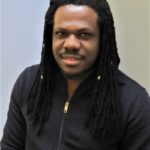
Joseph Sony Jean (affiliated fellow)
Joseph Sony Jean is post-doctoral Researcher at KITLV. His work focuses on the longue-durée landscape transformation of Haiti, using data from ethnography, ethnohistory and archaeological records. For the project CaribTRAILS (Caribbean Transdisciplinary Research. Archaeology of Indigenous Legacies Spinoza), he investigates the longue-durée occupation and the uses of caves from the Amerindian occupation to the contemporary society in the north of Haiti. Read more.
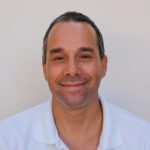
Harold Kelly (affiliated fellow)
Harold Kelly is a PhD Candidate in the NWO Island(er)s at the Helm project. He graduated with a doctorate at the Leiden University in 2003 with his thesis titled: Amerindian Coral Tools: A pilot study in experimental archaeology on coral artifacts from Anse á La Gourde, Guadeloupe. He has been working as an archaeologist since 2003 at the National Archaeological Museum Aruba and has also served as a deputy director of the museum between 2007 and 2013. Kelly is recently published in Early Settlers of The Insular Caribbean. Dearchazing the Archaic as coauthor of the paper titled Archaic Age of Aruba: New evidence on the first migrations to the island. His current research focuses on the rock art of Aruba and Archaic age settlement on the island and lifeways related to subsistence activities, social organization, technology and expression.
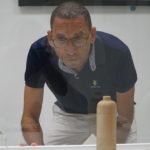
John Angus Martin (affiliated fellow)
John Angus Martin is a Caribbean historian and archivist, currently working as the director of the Saba Archaeological Center on Saba, Dutch Caribbean. He is in the process of completing his PhD in Heritage Management at the Faculty of Archaeology, Leiden University, looking at the longue-durée history and landscape identity in Grenada.
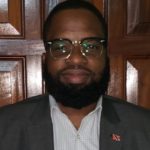
Ashleigh Morris (affiliated fellow)
Ashleigh John Morris is a Heritage Preservation and Research Officer at the National Trust of Trinidad and Tobago. His work focuses on safeguarding cultural and natural heritage. He holds both a bachelor and a master degree in History from the University of the West Indies, St Augustine, Trinidad and Tobago. Ashleigh has also been involved in several international research projects including the ERG-Synergy-funded Research Project: Nexus 1492 and a research collaboration between the University of Vienna, the University of the West Indies and the National Trust of Trinidad and Tobago: “Internment Camps in the Caribbean: Five Islands (Trinidad and Tobago)”.
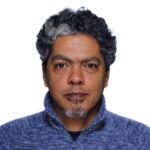
Jaime R. Pagán-Jiménez (affiliated senior researcher)
For the past 20 years, Jaime R. Pagán-Jiménez (Doctor en Antropología, National Autonomous University of Mexico, 2005) has studied the palaeoethnobotany of the Caribbean islands and continental territories in Central and South America. As a Puerto Rican archaeologist he has been working in the Caribbean region for the last 27 years, while simultaneously discussing and debating on anti- and postcolonial archaeology, but mostly about Neotropical palaeoethnobotany. Regarding this, he has focused on the origins, spread, and evolution of agricultural practices and ancient culinary traditions, publishing a number of papers, book chapters, and books on these topics (see https://www.researchgate.net/profile/Jaime_Pagan-Jimenez).
He is Adjunct Professor of Archaeological Theories, Caribbean Archaeology and Neotropical Palaeoethnobotany at the University of Puerto Rico and the Centre for Advanced Studies of Puerto Rico and the Caribbean, and at Higher Polytechnic College of the Littoral (Ecuador). Jaime is a Research Collaborator in Palaeoethnobotany of the Institut National de Recherches Archéologiques Préventives (France), and the Institute of Archaeology, University College London. In 2012 he was appointed as a Senior Researcher by the National Secretariat of Higher Education, Science, Technology, and Innovation of Ecuador to organise and develop the first world-class palaeoethnobotany research division of that country at the National Institute of Cultural Heritage. From 2010 Jaime has been an Affiliated Researcher and later a Senior Researcher in Palaeoethnobotany and Caribbean Archaeology at the Faculty of Archaeology, Leiden University, within the ERC Synergy Project NEXUS1492. He is currently collaborating with the KITLV and its Spinoza research project entitled CaribTRAILS, directed by Professor Corinne Hofman. At present, Jaime is a Senior Palaeoethnobotanist and Archaeologist, and Anthropology Advisor at Cultural Heritage & Plantscape Research, a research firm based at Leiden. There, he is trying to develop – together with academic and private sector partners from around the world – archaeological, palaeoethnobotanical, and culinary-based research programmes, and public outreach initiatives focused on plantscape’s emergence, evolution, and human use of it through space and time, anywhere.

Melissa Price (affiliated fellow)
Melissa Price is a PhD researcher at Leiden University, Faculty of Archaeology and investigates marine transgression at a prehistoric archaeological site in the Gulf of Mexico. She is a Senior Archaeologist and Co Diving Safety Officer at the Florida Bureau of Archaeological Research, Underwater Program. She received a BA in Anthropology from James Madison University (2012) and MA in Maritime Studies from East Carolina University (2015). Before joining the Bureau in 2016, she worked on a variety of projects around the world, including in Jordan, the Northwestern Hawaiian Islands, Costa Rica, Bermuda, and Kwajalein. Her interests include Florida’s Archaic Period, field conservation of wet artifacts, public outreach concerning underwater archaeology, and legislation protecting submerged cultural heritage.
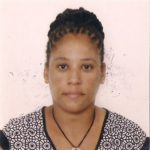
Andrea Richards (affiliated fellow)
Andrea is a Caribbean archaeologist presently working with the UNESCO Cluster Office for the Caribbean to implement initiatives which support the development of disaster resilience in the Caribbean’s culture sector and the safeguarding of intangible cultural heritage. She is presently undertaking doctoral research on climate change adaptation in the culture sector of the English speaking Caribbean with a focus on the role of indigenous knowledge systems in adaptation, and has also conducted research for publications that include the Movement of Cultural Property within and out Jamaica, the Impact of Land Based Development on Jamaican Taíno Archaeology and Cultural Resource Management: A Study of Jamaica, published in Protecting Heritage in the Caribbean. Andrea has an MA in public archaeology from the University College London and a BA in history and archaeology from the University of the West Indies, Mona.
Archaeological Heritage Value Mapping in Trinidad and Tobago 28 August 2023
Caribbean Ties opens at Leiden University 8 March 2023
Multiple Caribbean news outlets report on the new mural on the wall of the Saba Heritage Center in Windwardside, Saba. The mural was designed by artist and archaeologist Finn van der Leden. He worked together with artist Joan Bourque to paint the 3 by 5 meter mural in July 2022.
The Daily Herald reports ‘Guadeloupe to co-chair research into climate resiliency at USM’, 11 January 2021.
Tibisay Sankatsing Nava represents young researchers during the presentation of the KNAW Strategic Agenda 2021-2025 to Ingrid van Engelshoven, Dutch minister of Education, Culture and Science, 6 January 2021.
New Publication, ‘Ancient DNA provides new insights into the early peopling of the Caribbean‘, 4 June 2020.
Project Newsletter, ‘Island(er)s at the Helm Public Outreach Seminars‘, 31 March 2020.
Xiomara Balentina, ‘The Western University in ‘Exotic Spaces’‘, March 2020.
Amigoe, ‘Leren van tradities om weerbaarder te worden bij klimaatverandering‘, 14 March 2020.
Amigoe, ‘Onderzoek naar impact klimaatverandering op erfgoed‘, 12 March 2020.
24Ora, ‘Museo Arkeologico a Duna Charla con Antropologia y Arkeologia ta combina cu Cambio Climatico‘, 12 March 2020.
24Ora, ‘Seminario Consultativo Na Mana Riba Retonan Di Cambio Di Clima Den Caribe‘, 11 March 2020.
Saba News, ‘Discussion on “Sustainable Solutions for Climate Challenges in the Dutch Caribbean” – March 6‘, 4 March 2020.
The Daily Herald, ‘Post-coloniality and decoloniality central at academic symposium‘, 29 February 2020.
The Daily Herald, ‘USM to host researchers of climate change vulnerability‘, 25 February 2020.
Leiden University, ‘Dr. Jorge Ulloa Hung recognized for outstanding publication record‘, 18 November 2019.
Leiden University, ‘Irvince Auguiste honoured with the Community Service Award‘, 18 November 2019.
Leiden University, ‘Katarina Jacobson wins Emerging Caribbean Museum Professional Award‘, 18 November 2019.
Caribbean Heritage Network, ‘Profiles in heritage: John Angus Martin, A Grenadian in Saba‘, 10 November 2019.
Leidraad; Alumni magazine 3, ‘De bodem geeft antwoord‘, oktober 2019.
The archaeology students help coordinate the Caribbean Ties exhibition at Leiden University, March 2023.
Corinne Hofman and Irvince Nanichi Auguiste present Stories from Wai’tukubuli in the Colloquium Guest Lecture Series at the University of California San Diego, Department of Anthropology, 2 November 2022
Corinne Hofman presents at the VIII Congreso de Arqueología y Antropología hosted by the Museo del Hombre Dominicano, Santo Domingo, Dominican Republic, October 2022.
Caribbean Ties is hosted at the EuroScience Open Forum in the Pieterskerk as part of the Leiden European City of Science 2022 program, July 2022
The CaribTRAILS team visits an Elementary School in Valverde Mao, Dominican Republic, and organized educational archaeological activities, June 2022.
Tibisay Sankatsing Nava represents young researchers and discusses the importance of diversity and inclusion in academia during the presentation of the KNAW Strategic Agenda 2021-2025 to Ingrid van Engelshoven, Dutch minister of Education, Culture and Science, 6 January 2021.
Corinne Hofman moderated the NL Commission for UNESCO: ‘Culture-based solutions to local climate adaptation – Road to CAS webinar‘, 22 October 2020.
7th Annual Trust Pioneers Lecture, Patrimony or Patricide? The natural and human impacts threatening our archaeological heritage, 26 september 2020.
Symposium Gedeeld Caribisch erfgoed; gedeelde toekomst?, 25 november 2019.
Lezing ‘Antiliaanse Ontmoetingen: coproductie van kennis over de inheemse bewoners van de Caribische eilanden’, Nederlandse Vrouwenclub Amsterdam Lyceum, 21 november 2019.
Exhibition ‘Caribbean Ties’, Museon, The Hague, until 21 June 2020.
Caribbean Ties launches at Trinidad and Tobago, 17 January 2023.
Caribbean Ties opens at the Robert Weinum school in St Martin, 11 January 2023.
Caribbean Ties opens at Tibes Ceremonial Center in Ponce, Puerto Rico, 19 November 2022.
Two new publications in the 22nd volume and special edition of the Journal of Caribbean Archaeology, titled Yamaye: Jamaican Prehistory and Contact Period – Current Research and Challenges:
Shev et al. Zooarchaeological and Isotopic Findings from White Marl, Jamaica.
Richards. Potential Effects of Climate Change on Jamaica’s pre-Columbian Archaeological Record.
Caribbean Ties was presented at the 10th edition of the EuroScience Open Forum, hosted by the city of Leiden between 13 and 16 July 2022 as part of its program as the European City of Science 2022. Caribbean Ties. Connected people, then and now is an international exhibition that reflects the complex diversity that existed in the Caribbean archipelago before 1492. This cultural diversity remains a vibrant reality today. Combining local, regional, and global perspectives, the Caribbean Ties exhibit focuses on the connections between past and present Indigenous cultures and the current multi-ethnic communities in the Caribbean, and as such explores the living and current impact of Indigenous heritage. This exhibit was created, designed, and developed in collaboration with more than 20 partners in the Caribbean and Europe as part of the ERC-Synergy Nexus1492 project (2013-2019).
PhD researcher Andrea Richards participated in the International Association of Caribbean Archaeology (IACA) conference held 27 June to 1 July 2022. Andrea presented on Barbados Coastal Heritage under threat: Planning for the Changing Climate, that forms part of her doctoral research, focusing on cultural pathways to climate change adaptation in the Anglophone Caribbean. This research is also a part of a series of vulnerability assessments of coastal heritage being undertaken with a strong governance component. Andrea was also elected as student representative to the IACA board and will serve until 2024 with the objective being to increase student involvement in the organization, particularly those students locally based in the Caribbean.
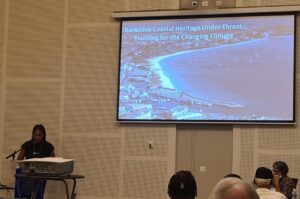
Andrea Richards at IACA 2022
Congratulations Dr. Joseph Sony Jean! Dr. Jean was awarded a VENI grant for his research Places to not forget: De-silencing the narratives and heritage of the world’s first black republic, Haiti.
New publication! Casale et al. 2022, Technological Persistence in Ceramic Production in the Southeastern Hispaniola. The Case Study of El Cabo (600-1502 CE).
Our fantastic Research Master students at the Faculty of Archaeology, Leiden University, presented their posters on decolonizing archaeological practices at this year’s Archon Day at the Allard Pierson Museum, Amsterdam (29 oct 2021). Click the links to see their wonderful work!
- Decolonising museums: The case of African displays in the Dominican Republic by Marianny Aguasvivas Hernandez
- How can we decolonize Caribbean zooarchaeology? A call for conversation by Zoë van Litsenburg
- Where do we draw the line? Decolonising the study of human remains in the Netherlands by Oriana Chiappa Zugazagoitia
- Decolonizing archaeological isotopic studies: Integration into local knowledge towards climate change mitigation by Eleni Seferidou
- Wandering bones: A multidisciplinary case study of dispersed and fragmented bone at two Dominican Republic sites by Nina Schoon
Prof. dr. Corinne Hofman and Dr. Jorge Ulloa Hung were interviewed about the pre-Colonial Caribbean for OER Project’s World History Project. The OER Project creates standard-based world history courses that build upon foundational historical thinking skills, specifically aimed at high school students.
Caribbean Ties. Connected people, then and now very well received at the San Nicolas Library in Aruba.
New article! Jean et al. 2021. Complex landscape biographies: palimpsests of Fort-Liberté, Haiti. Landscape Research.
Big News! On January 7th 2021, the Island(er)s at the Helm: Co-creating sustainable and inclusive solutions for social adaptation to climate challenges in the (Dutch) Caribbean was awarded funding by the NWO Caribbean Research programme.
New article! Antczak et al. 2020. History of the indigenous peoples of the sixteenth-century province of Caracas, Venezuela. Colonial Latin American Review.
Congratulations Dr. Marlena Antczak! Her project Emergency Preparedness for Cultural Heritage under Threat, was awarded funding from the Prins Claus Fonds and the Gerda Henkel Foundation.
New article! Casale et al. 2020. Transatlantic Connections in Colonial and Post-colonial Haiti: Archaeometric Evidence for Taches Noires Glazed Tableware Imported from Albissola, Italy to Fort Liberté, Haiti. International Journal of Historical Archaeology.
Prof. dr. Corinne L. Hofman is the local champion for the 10th edition of the EuroScience Open Forum congress, set to take place in Leiden in 2022. On September 6th, Corinne was at the closing ceremony of ESOF 2020 in Trieste – click this link to read about the ceremony and ESOF 2022.
Dr. Joseph Sony Jean was recently interviewed by Ayibo Post regarding the current state of heritage in Haiti – click this link to read the article (in French)!
In May 2020, CaribTRAILS welcomed three new external PhD candidates: Andrea Richards, Melissa Price, and Ashleigh Morris. Read about their research projects on our team page.
